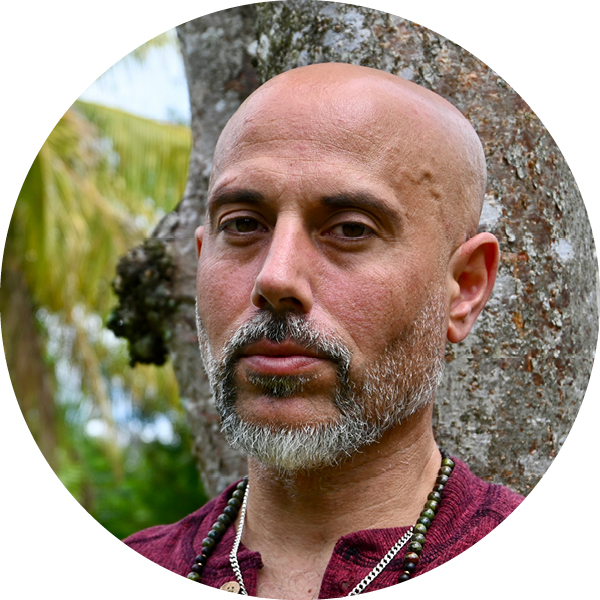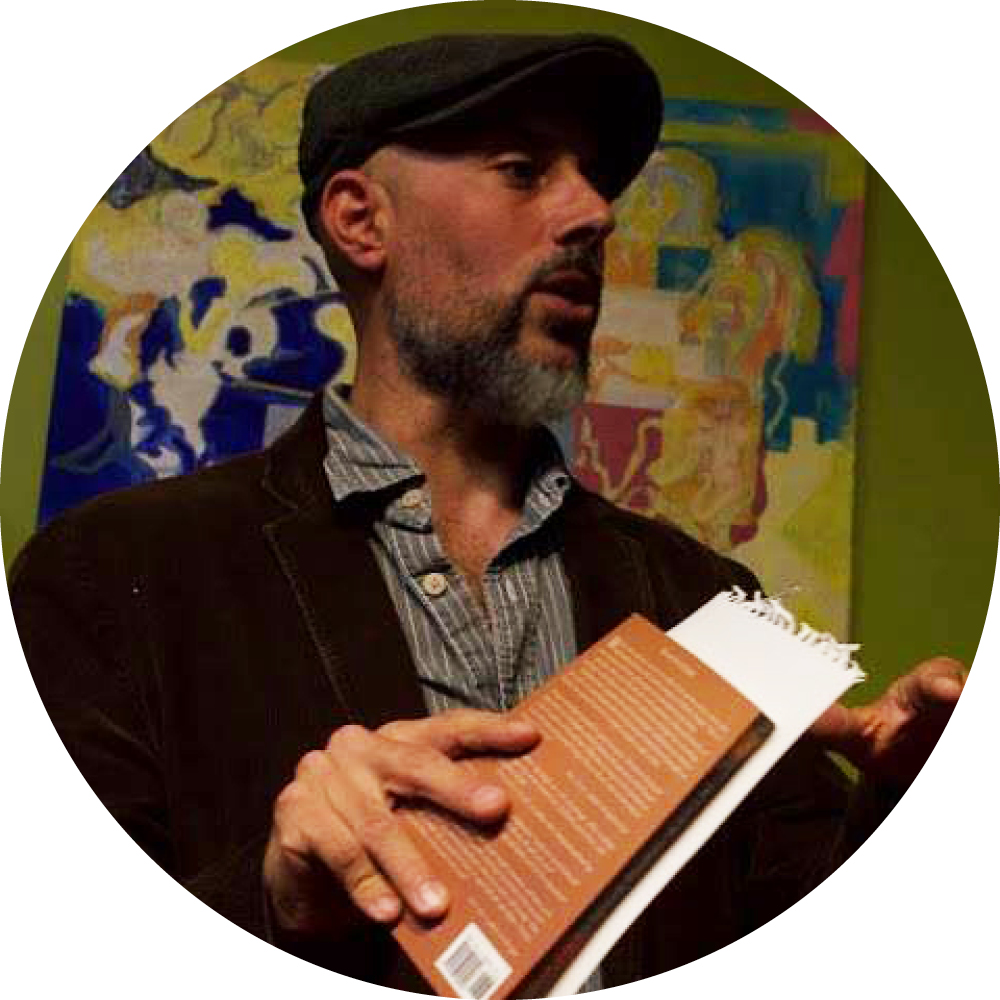The Charity Scam:
How the Nonprofit System Stifles Innovation, Devalues the Wisdom of the Marginalized, and Allows the Rich to Avoid Taking Responsibility for a Just Society
By Theodore Richards
1
The Sure Thing
It seemed like a sure thing when I got the call. An old colleague asked me if I would be interested in applying for a recently opened position as the executive director of a nonprofit. In addition to the decade of experience I had running the nonprofit I founded, I also had a deep history with this organization. I had the support of key staff members, community members, and families whom I’d known for decades. Its founder, who now had Alzheimer’s, had been my mentor – although she couldn’t communicate much, I was told that when she was informed I might be taking over, she clapped her hands.
What could possibly go wrong?
2
Why Was I looking for a
New Job Anyway?
I had founded a nonprofit in 2009 because I had Big Ideas. I wanted to re-imagine how we thought about education. After graduate school, I wanted to implement my holistic educational philosophy in the real world. And I wanted to put into practice educational programs that didn’t merely produce students who could contribute to our destructive civilization, but who could deconstruct and reimagine it. This is how I thought it worked: I’d make powerful, well-researched arguments for what I would do, and this would convince foundations and philanthropists to contribute.
What I discovered was something entirely different when it came to foundations. The foundation has little interest in innovation or Big Ideas. In fact, foundations don’t listen to the ideas of people doing the work on the ground at all. It’s the other way around. Foundations, in fact, dictate what nonprofits do. To be “successful” – that is, to maintain a healthy, sustainable income – a nonprofit creates a system to “chase” grants – that is, to learn what the foundations have already determined should be funded and create programming that fits.
I had better luck wealthy individuals. However, I ultimately encountered what I refer to as “The Rich Guy Problem.” When a wealthy individual contributes to an organization, he often begins to think he ought to have a role in what happens. He thinks – perhaps because everyone in his culture has told him so – that he knows more about the work than those with training, experience, or an actual stake. The other problem with the Rich Guy is that he can be fickle. When he donates on a whim, he can withdraw on a whim.
So, after a decade of hustling on my own – and having some success – I was tired. I thought that perhaps what I needed was more institutional support, an organization with more connections and stability. That was why I was interested in the new job. But the problem was that all nonprofits, regardless of their institutional stability, are subject to the same systemic problems.
3
A Critique of the
Nonprofit System
The first problem with the nonprofit system is its fundamental conservatism. Let’s think about this for a moment. We have created a system in which old money mandates the work that is supposed to empower the marginalized. Does anyone really believe that such a system would encourage new ideas? Does anyone think that such a system would actually encourage programming that challenges the status quo? The reality of our system – to be clear, because it is dominated by conservative foundations led by old, rich, white men – is that it limits innovation and the input of the very communities it is supposed to serve. Moreover, they are dominated by metrics and quantitative assessment – in other words, ways of knowing that capitalism values. One can see clearly how such a system wouldn’t encourage challenging the values of capitalism.
Second, the entire system of philanthropy is essentially a tax scam. Let’s picture this clearly: if you were a billionaire, you could simply pay your fair share of taxes and contribute, as a citizen, to various government programs that attempt to level the playing field. One can debate how effective such programs are, but, if they aren’t working, there is a clear way to deal with their ineffectiveness: democracy. Paying taxes contributes to programs that are subject to the oversight of the citizenry. Regardless of one’s wealth, in theory (I realize, in the age of Citizens United, that this isn’t necessarily the case in practice), each citizen has an equal say in such oversight through the vote. What oversight is there to the programs started by wealthy philanthropists? Sure, there is reporting required to foundations; but this isn’t the same a democratic process.
Bill Gates’s work is a great example. A man with no particular insight or wisdom in the area of education has contributed millions to educational programs that have been largely ineffective. Not only is this a shame for those families who’ve been duped into thinking they’d be getting a superior education; we also lost millions in tax revenue that could have been invested in programs created by actual educators.
All this speaks to a simple truth too often ignored: We value the opinions and ideas of the rich more than is merited. Why would we assume Bill Gates knew more about education than a teacher? Would Mr. Gates listen if, say, a teacher, or a plumber, showed up at Microsoft with big ideas about transforming computers?
The truth is that we’d be better off if the wealthy simply paid their fair share and our society became more egalitarian. Better still would be for them to stop working in exploitative, destructive industries that contribute to an unjust society and do something that actually contributes. They’d make less money, off course. But there would be less need for all these non-profits to make up for the injustices they’ve been perpetuating.
The dominance of the rich in the nonprofit system also contributes to rampant paternalism. Those who control this system might have pictures of their “clients” on brochures or parade them out at fundraisers, but they seldom ask their opinions about programming or – I would learn this the hard way – hiring. Seldom do they condescend to actually ask the community what its needs, its dreams, or its ideas are. The nonprofit system seldom challenges the larger systems in society. That is, the narrative of the nonprofit system is this: “The problem isn’t that we live in a society in which the gulf between rich and poor is massive and growing or in which racism is deep and systemic; the problem is with the marginalized themselves. They simply need to learn to be more like the rich.” For example, the board of the nonprofit I interviewed with focuses on finding “special kids” whom they can groom to get business degrees and work in finance and be featured on their website. The rest are steered toward the military. Assimilation is the emphasis, not empowerment.
But the problems with the nonprofit system are not limited to the philanthropists. Most “successful” nonprofits have boards dominated by wealthy people with a background in something like finance or law – usually with no connection to the work or the community. It’s easy to see how this happens. Any nonprofit would want people with connections or skills related to money. But it isn’t uncommon for nonprofit boards to consist almost entirely of bankers. And when the time comes for the organization to make decisions that are unrelated to money, such as hiring new leadership or guiding its long-term vision, this is the group who makes the decisions.
4
The Interview
You’ve probably guessed that I didn’t get the job. That, in itself, isn’t noteworthy. I’m sure there were other fine candidates. And truthfully, I was relieved – it became obvious that it wasn’t what I wanted to do. This organization had become the quintessential paternalistic nonprofit, totally disinterested in and oblivious to notions of liberation and empowerment. But what’s remarkable is how I didn’t get the job. Something had happened during the time since I’d worked there as its founder descended into Alzheimer’s. This grassroots organization that had been focused on holistic literacy and compassionate community-building had gone corporate. With its founder unable to object, its board had been taken over by a group who’d likely never even been to the communities it served. More significantly, they had no interest in what the community actually had to say.
I went to an interview. I found myself in a room full of people with backgrounds in business, finance, even the military – but none with roots in community work or education. They’d created rubrics, wanted to know about quantitative assessments and how much money I could bring in. I’d expected a conversation about the future of the program, about how to empower youth. I’d expected them to talk to students and alumni of the program, to parents and staff. But they never did. After telling me I was a “finalist”, they gave me a series of lies (“we are checking your references”) and then simply stopped calling. After years of work in the community, of collaboration, and of building relationships, they couldn’t even bother to call me.
But this isn’t about my own hurt feelings. The people in the community who are constantly barraged with nonprofits who tell them what they should want, how they should change, and what they should think – they suffer far more. The real victims are the people whose suffering has become at once big business and a self-indulgent hobby for the rich.
Postscript
Imagine:
Imagine if instead of allowing the rich to avoid taxes by donating to nonprofits, we simply created a more egalitarian society.
Imagine if instead of dictating to the marginalized how they need to change, we actually paid attention to what they have to offer.
Imagine if instead of believing that the powerful had all the answers, we recognized that the answers to the most important questions can never be answered by those who have a stake in the status quo.

Re-sources
Re-Imagining Education

Empowering educators to take a deeper look at the stories told in our schools and to re-imagine them in transformative and
nurturing learning spaces.
Learning Opportunities

Classes, workshops, and lectures that help to empower people to re-imagine who they are and their place in the world.
Get Involved

Help the Chicago Wisdom Project realize its mission to re-imagine education through holistic programming that transforms individual, community and world through creative expression.
